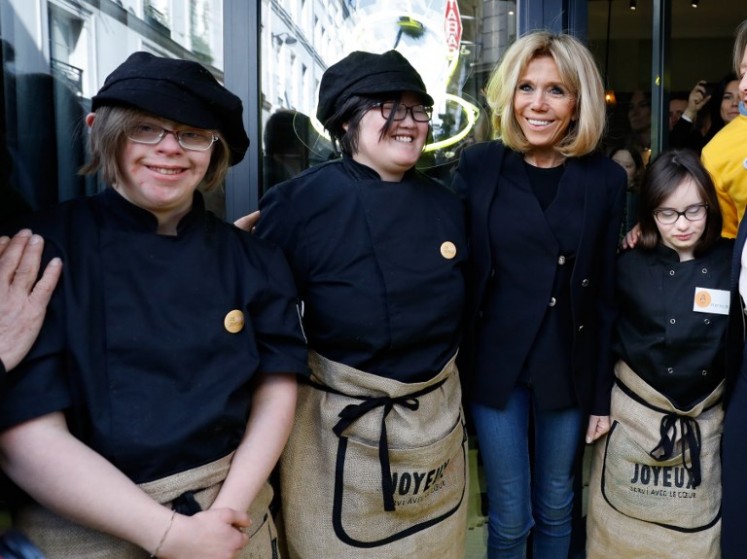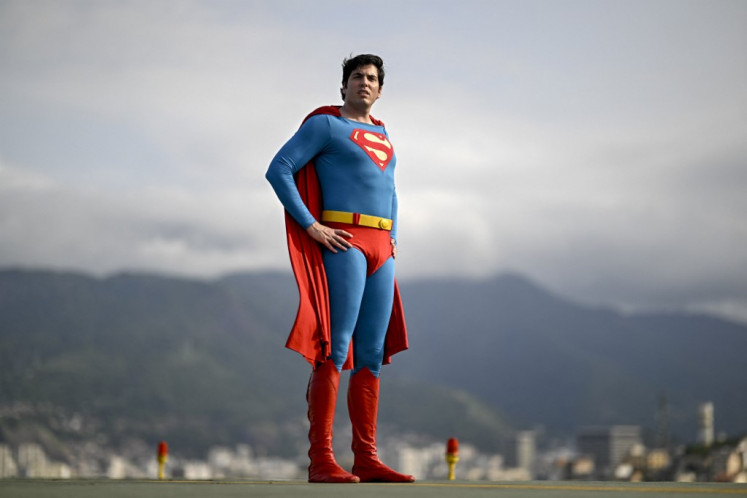Born too soon: What it's like to have a premature baby
The baby weighed 1315 grams when she was born. A team of nurses and a pediatrician were standing by. I only caught a glimpse of her before they rushed her to the neonatal intensive-care unit (NICU). I didn't see her for another 12 hours.
Change Size
 The baby weighed 1315 grams when she was born. She couldn't breathe on her own. (Shutterstock/-)
The baby weighed 1315 grams when she was born. She couldn't breathe on her own. (Shutterstock/-)
I
t was 2014, and Brazil was playing against the Netherlands for third place in the FIFA World Cup. I woke my husband for the match, since he was rooting for the latter. It was around 3 a.m., and I had not slept a wink.
The morning before, I had started having contractions every 10-15 minutes. We went to the hospital and did the usual checkup: blood pressure, body weight, USG. Everything looked normal. The doctor told me to rest and gave me medications to reduce the contractions. It worked. For a while, at least.
By the time the Netherlands had declared victory over Brazil, the contractions had become more painful and more frequent. Later that morning we were back at the hospital. The midwives carried out some examinations. I was 10 centimeters dilated. They had to deliver the baby.
I was only 27 weeks pregnant at the time.
I remember I took the news quite calmly. Not because I wasn't scared, but because the whole situation felt so unreal.
At the NICU
The baby weighed 1315 grams when she was born. A team of nurses and a pediatrician were standing by. I only caught a glimpse of her before they rushed her to the neonatal intensive-care unit (NICU). I didn't see her for another 12 hours.
The first night of her life, Amel slept in an incubator, attached to a ventilator, wires and tubes all over her body; her skin almost translucent. She couldn't breathe on her own.
“You can start trying to pump your breastmilk,” said the nurse.
It was only then that the reality started to sink in. I felt cheated. I should have had three more months to prepare. How could I fool my body into producing milk so early? I didn't even know what a breast pump looked like.
As is often the case with spontaneous preterm birth, it's hard to identify what caused the early labor. This left room for a tremendous amount of guilt on my part. Was it because I pretty much hated being pregnant and couldn't wait to be done with it? Was it my fault that she was born with underdeveloped organs?
Of course, remarks from relatives were rarely comforting. “It's because you were too tired,” they said. “Your pregnancy was risky because you didn't eat enough.”
It was not the perfect setting for bonding, and I had difficulty forming an attachment with my baby.
Some days, I felt so detached from her, from reality, that it felt like her existence was reduced to a series of medical facts. This led to more guilt, more fear. What if I never felt maternal love for her? I was lucky that even under so much stress, my breastmilk supply remained plentiful.
When she was stable enough, we practiced kangaroo care—a method of skin-to-skin contact. This method was considered beneficial for better regulation of the baby's body temperature, heart rate and increased weight gain.
She did gain weight, though very slowly. It's hard to appreciate it on a day-to-day basis, but when we looked at the bigger picture, it truly was a remarkable journey. She went from being dependent on the ventilator, to a CPAP (continuous positive airway pressure), before finally being able to breathe on her own.
After seven weeks at the hospital, she was cleared to go home.
Extended newborn phase
When she came home, she still couldn't latch properly. I had to feed her milk from a spoon. When she did latch, it lasted only for 10 seconds or so before she was panting with exhaustion. But we kept trying and after two weeks, we ditched the spoon. She was nursing like a champion.
Her journey was by no means over once she was out of the NICU. There were follow-up appointments and exams, test for OAE (otoacoustic emissions), ROP (retinopathy of prematurity), PDA (patent ductus arteriosis) and other conditions related to prematurity. It was almost a miracle she passed them all.
In some ways, she was not unlike other newborns. She had reflux, didn't sleep for more than 20 minutes at a time and wanted to be held all day.
Nothing teaches you better about sleep deprivation than taking care of a newborn. People told me it got better after three months. But at three months, we had not even reached her due date. She was a newborn for six months.
Unpredictable milestones
There was a sinking feeling when I saw a friend's baby sitting unassisted at five months. My six months old had not even rolled yet. On our pediatrician's advice, we enrolled in an early intervention program.
The doctor showed us how to strengthen the baby's muscles to help her roll, sit, crawl and walk. She mastered rolling and crawling almost naturally. But it took a very long time before she was able to sit unassisted.
I was afraid she would never get the hang of it, but she finally did. At 13 months. Milestones are unpredictable like that.
She is 19 months old now and still does not walk by herself. When she's holding my hand, she can walk just fine. Otherwise, she's happy just crawling around.
There are always tactless people who say: “Why isn't she walking yet? My 10-month-old is running around all over the shop.”
Yeah? Does he do particle physics too? The thing is, I've stopped comparing my child with other children. Because I was there from the beginning: I've seen her fight to breathe, struggle to latch and learn to crawl. I know that my baby is a fighter. So she can take her time, I'm in no hurry. She will walk when she's ready to walk.
Until then, she can hold my hand.
***
Annisa Ihsani is a writer, book nerd, and mother of one. She is the author of middle-grade novel "Teka-Teki Terakhir" (Gramedia Pustaka Utama, 2014).









